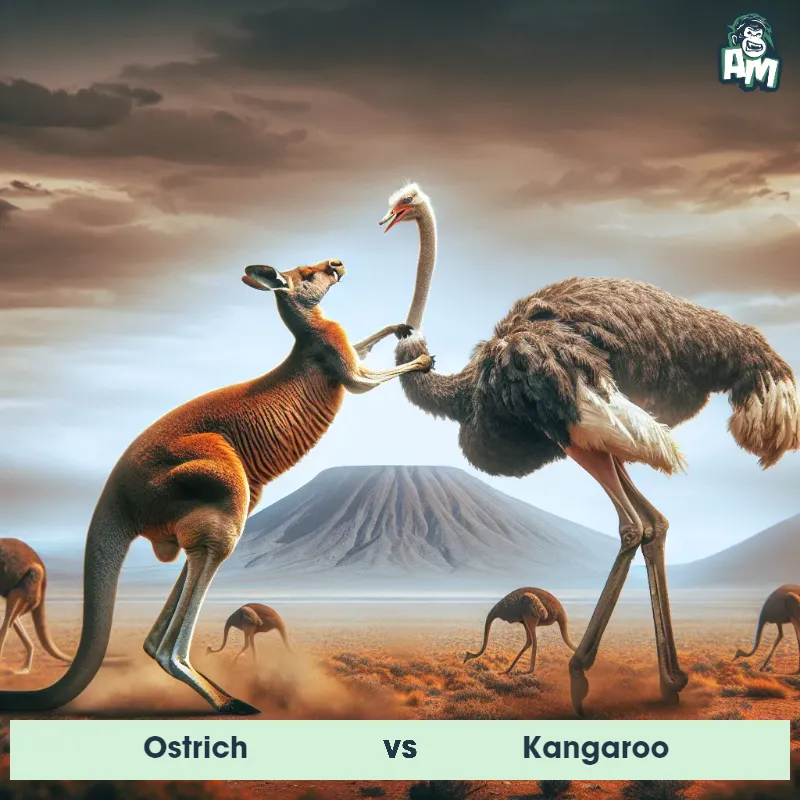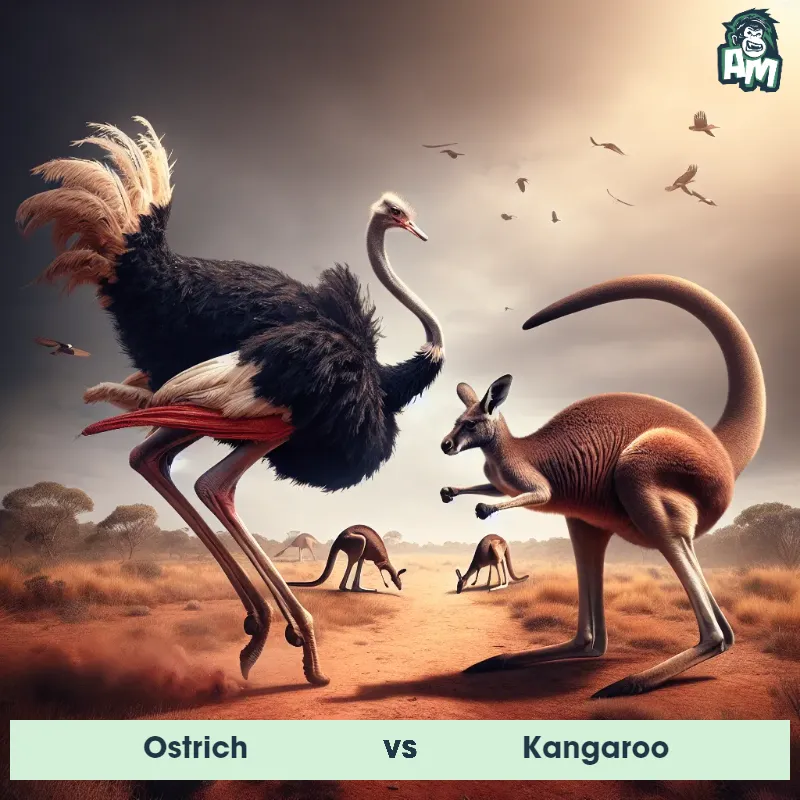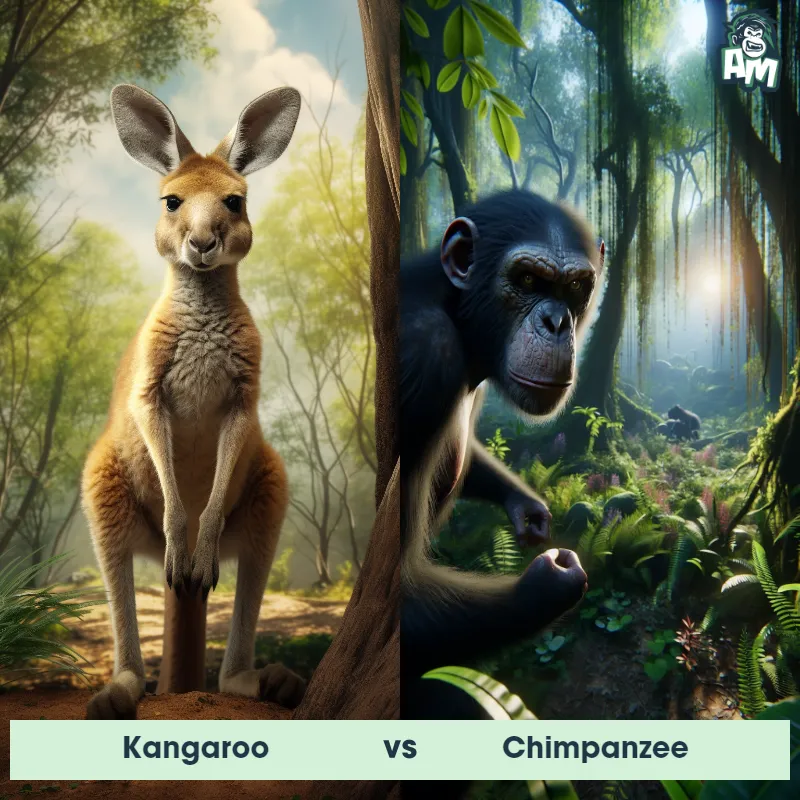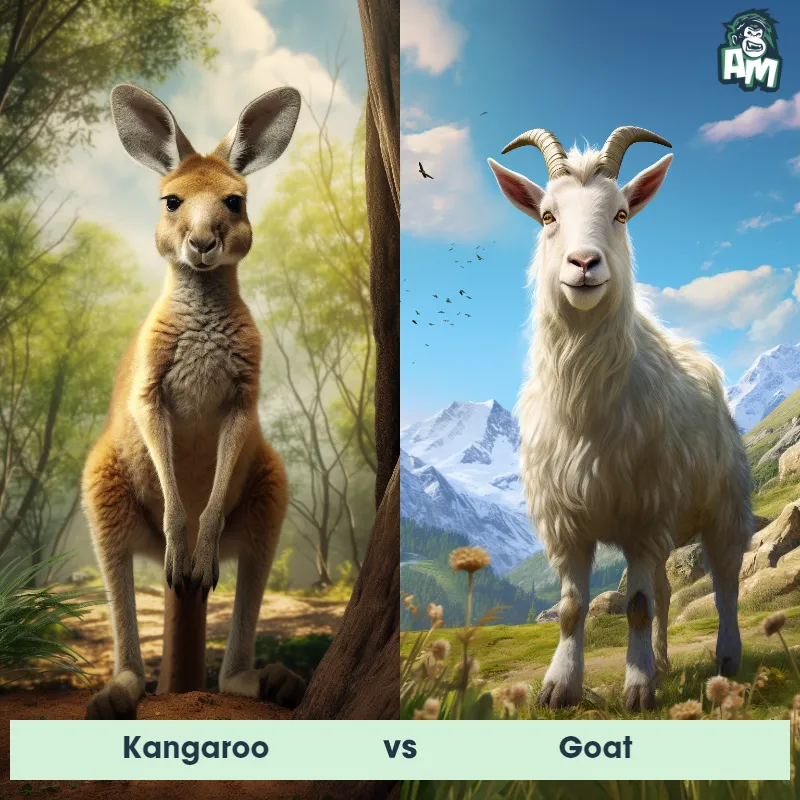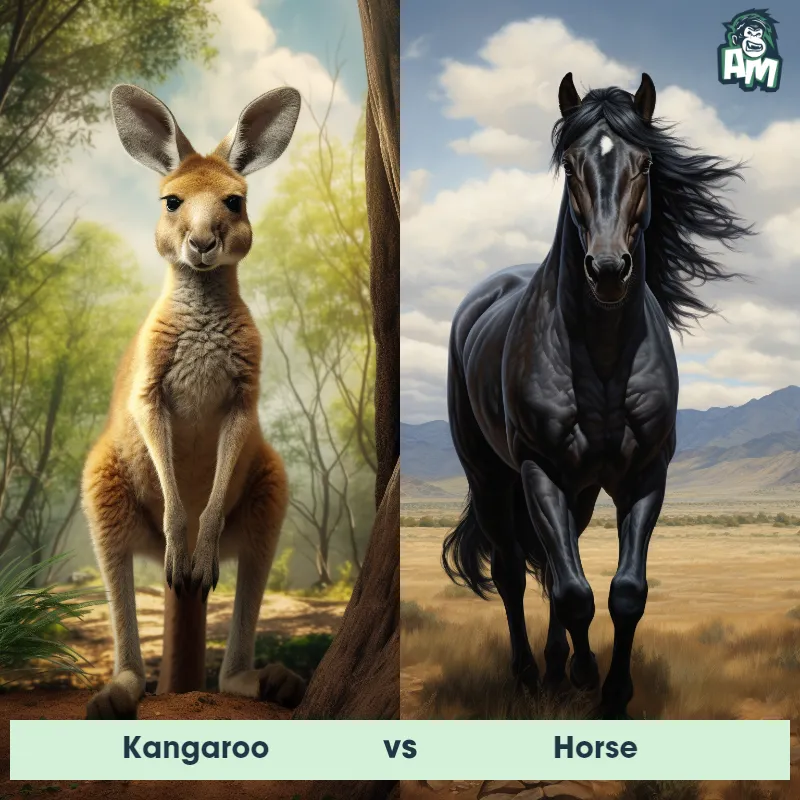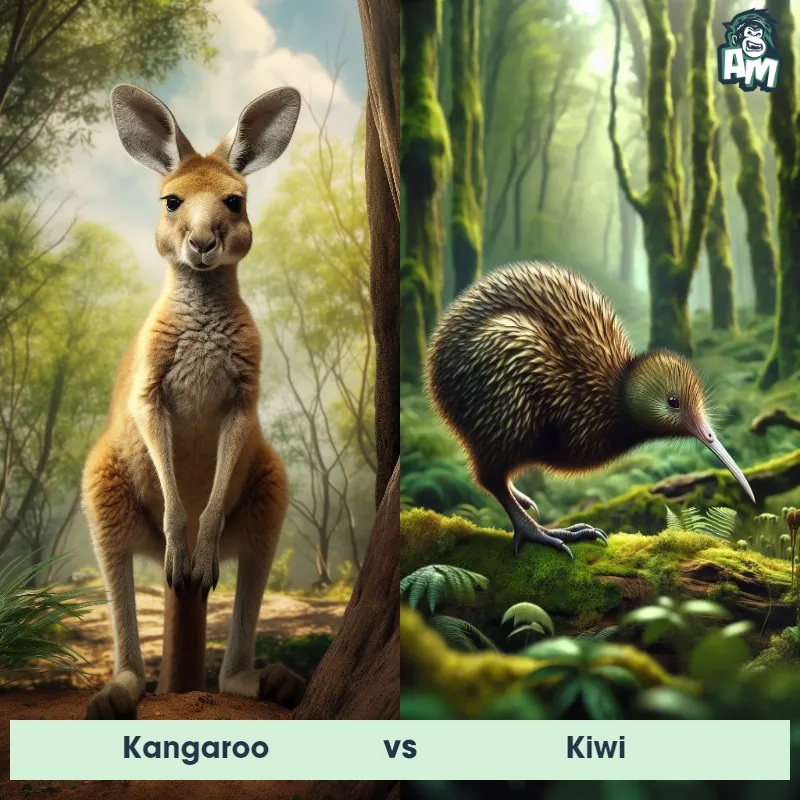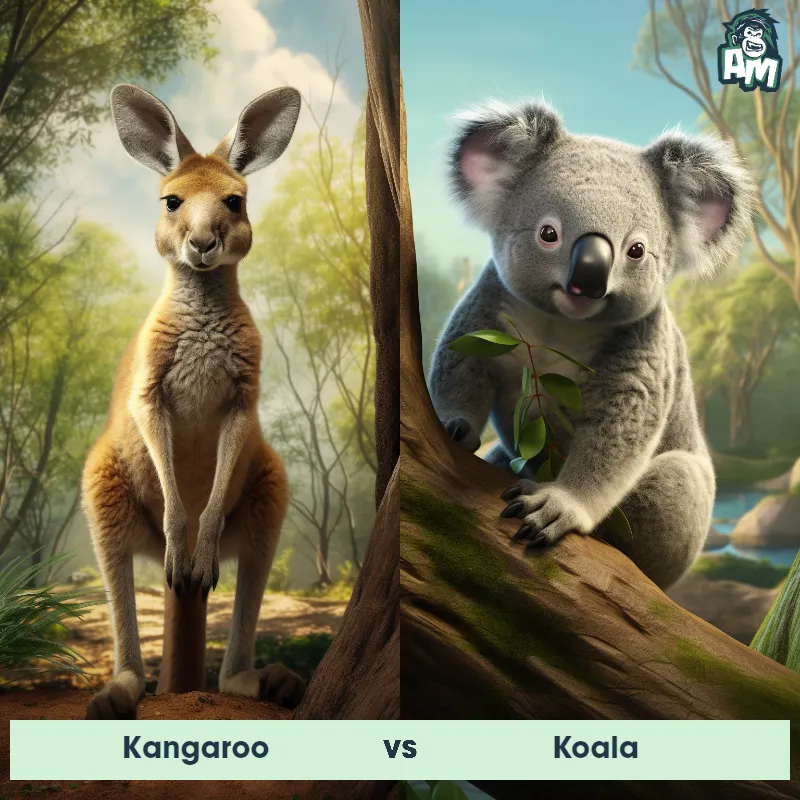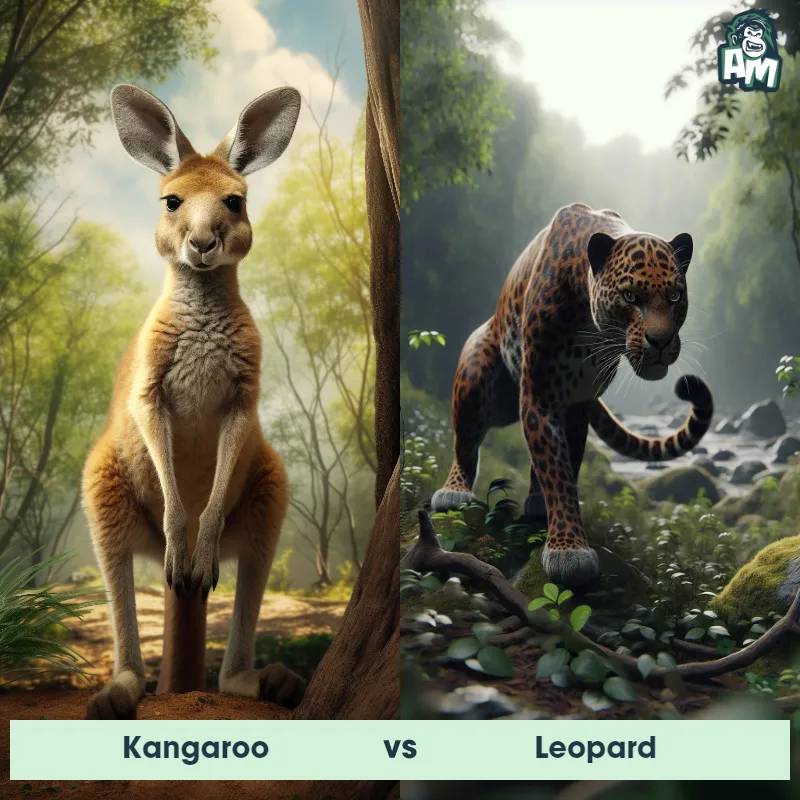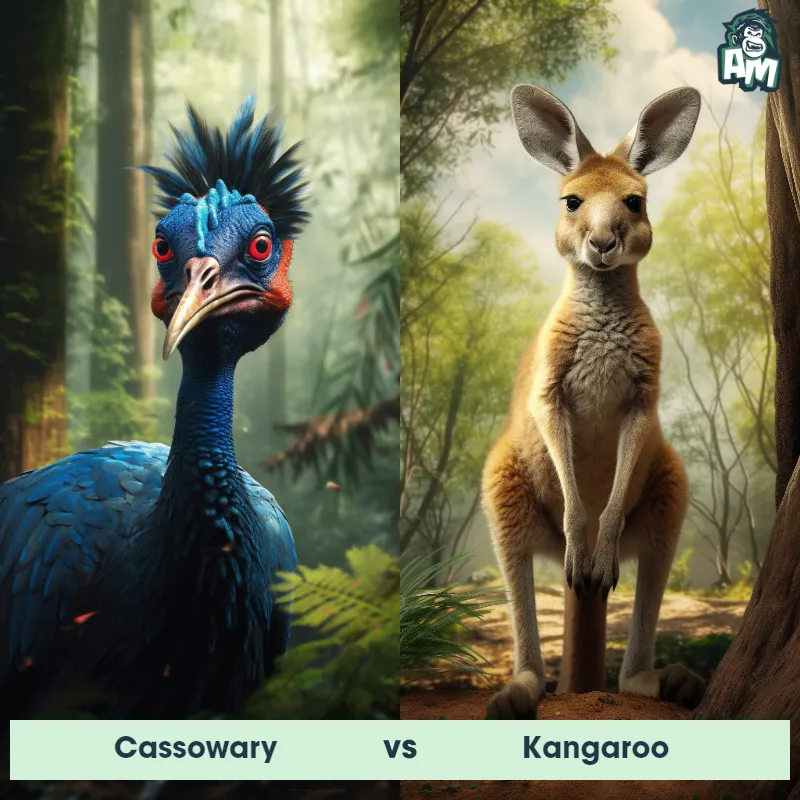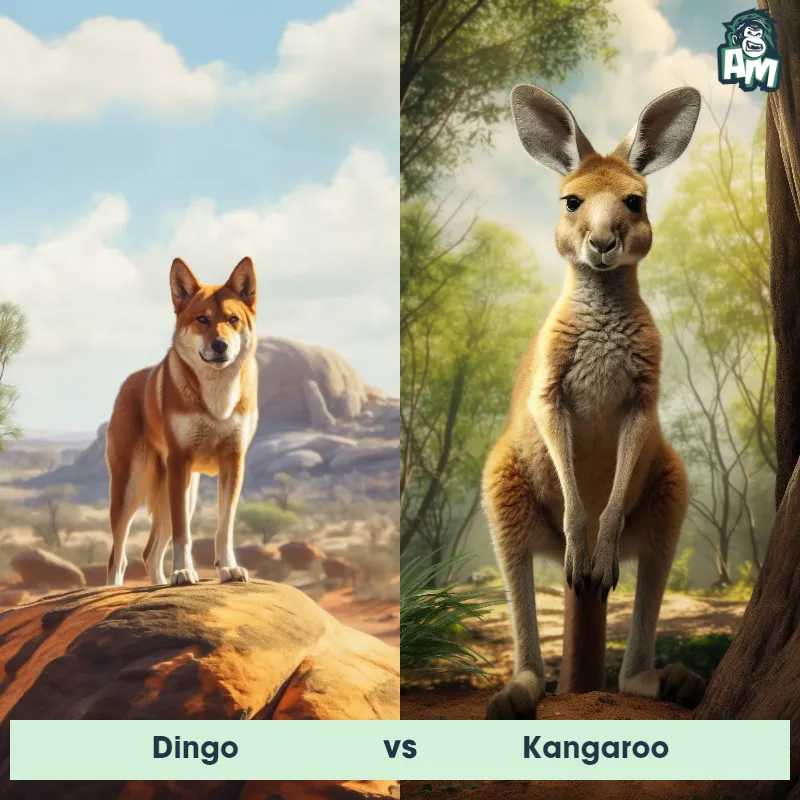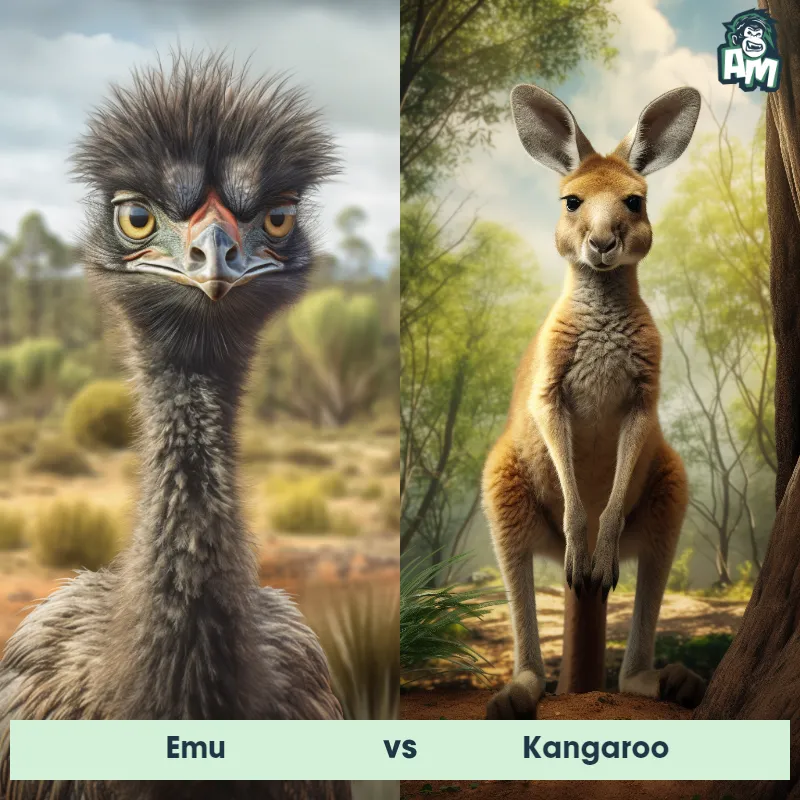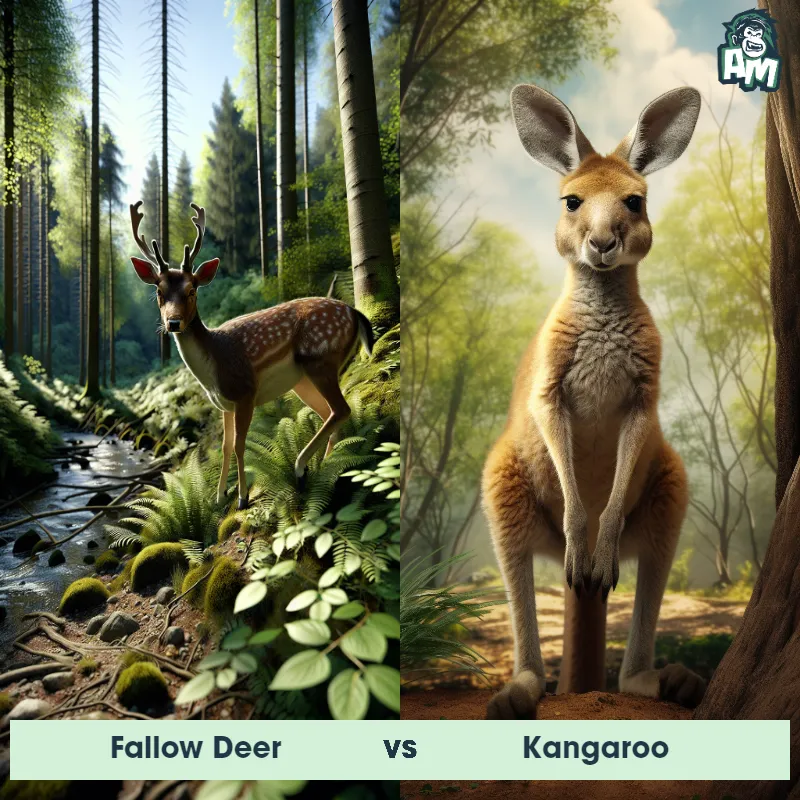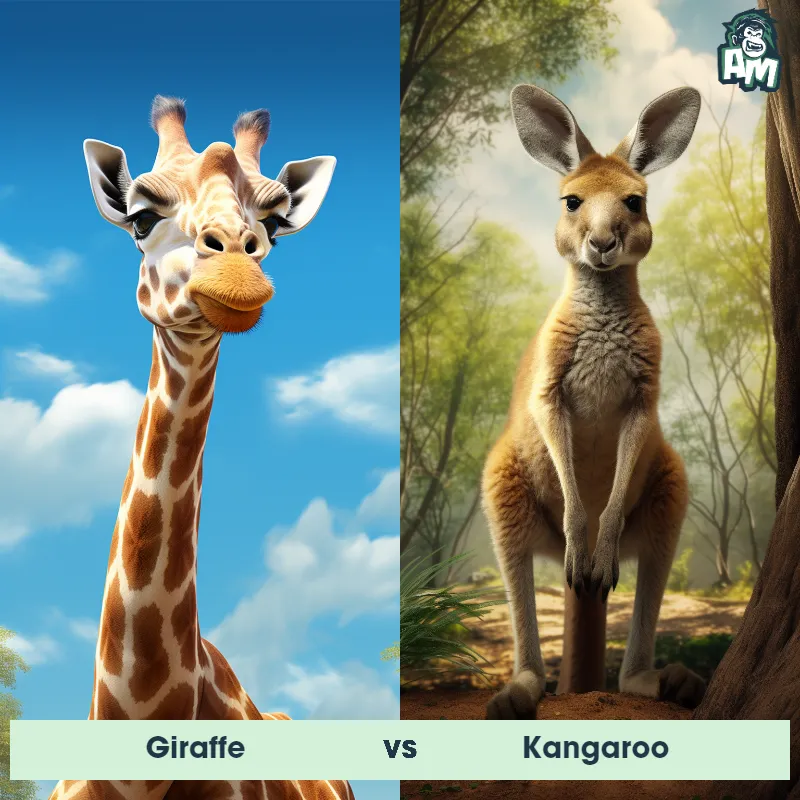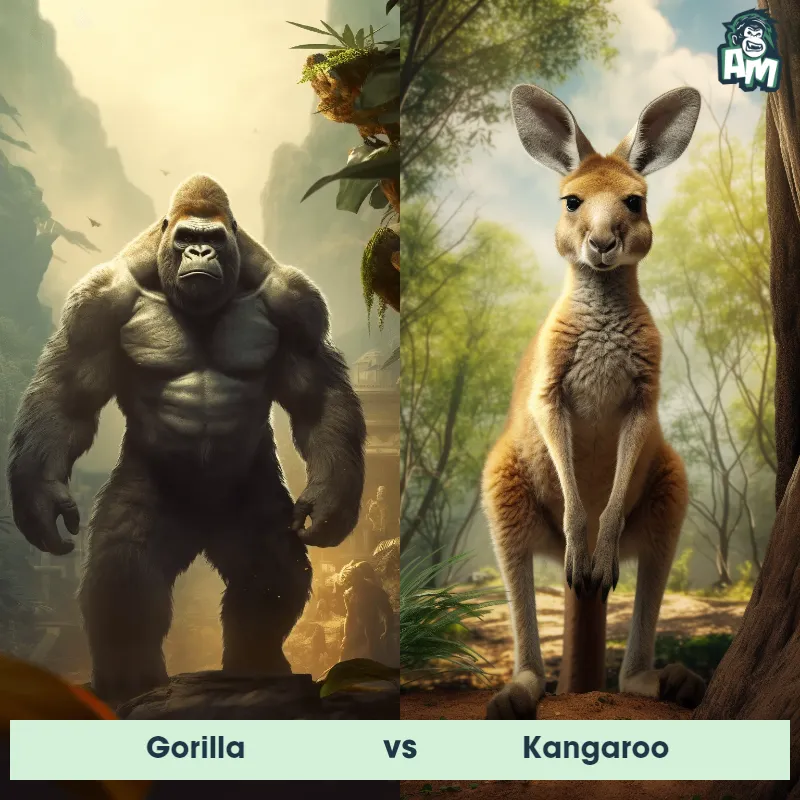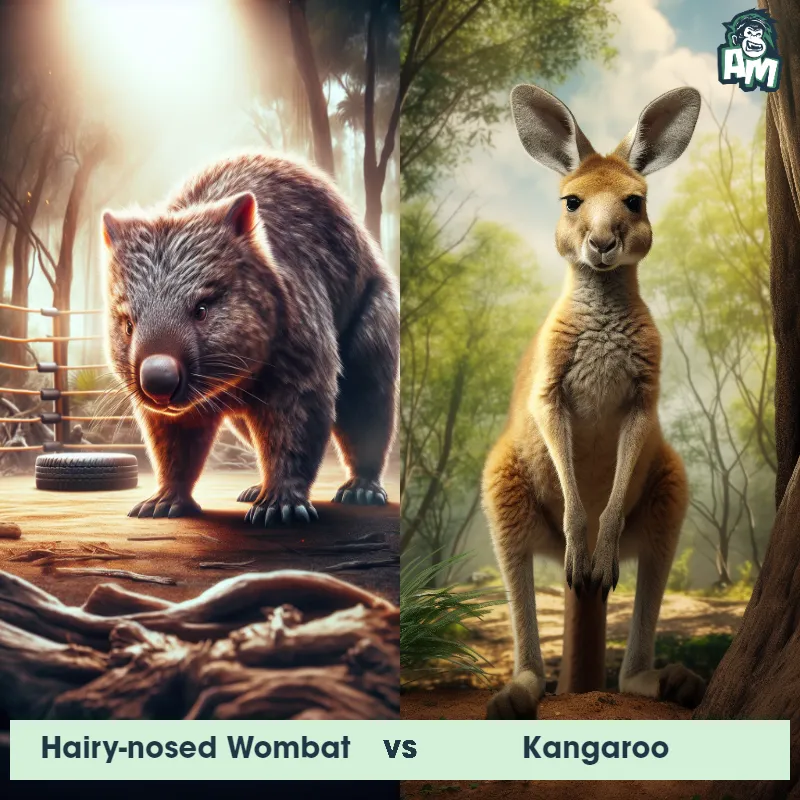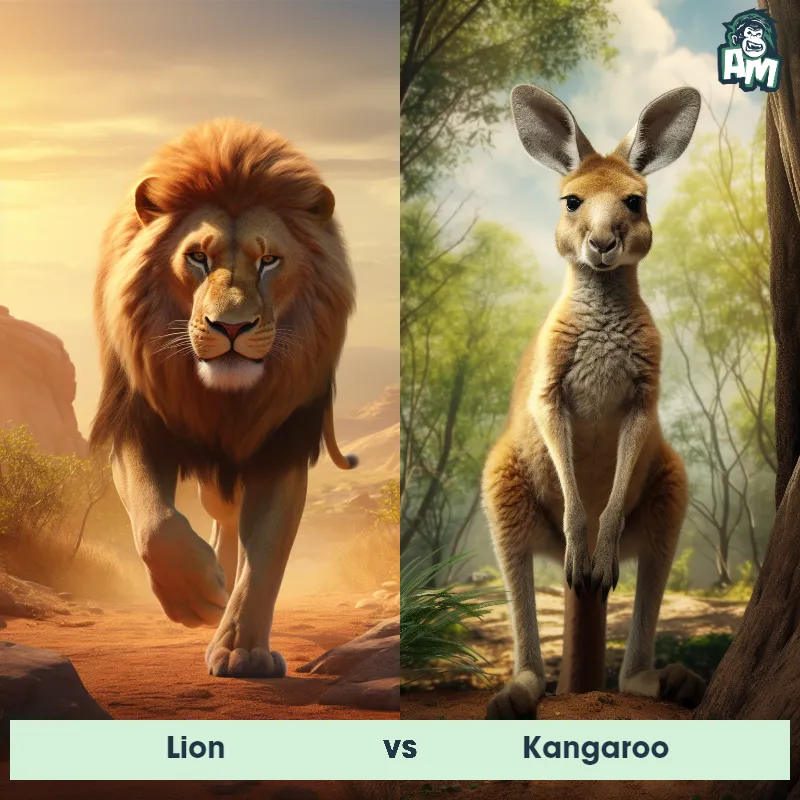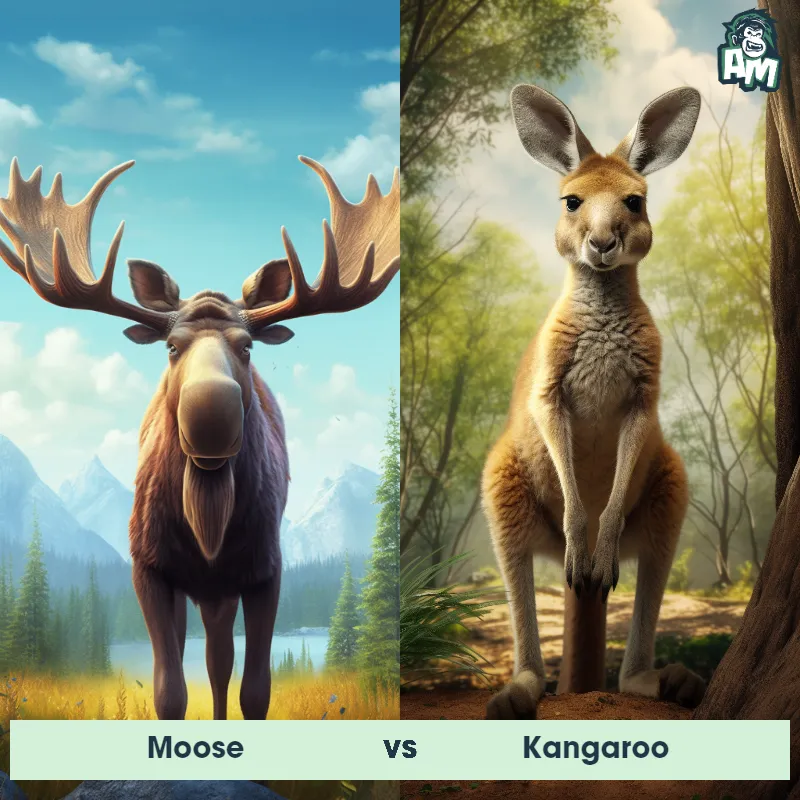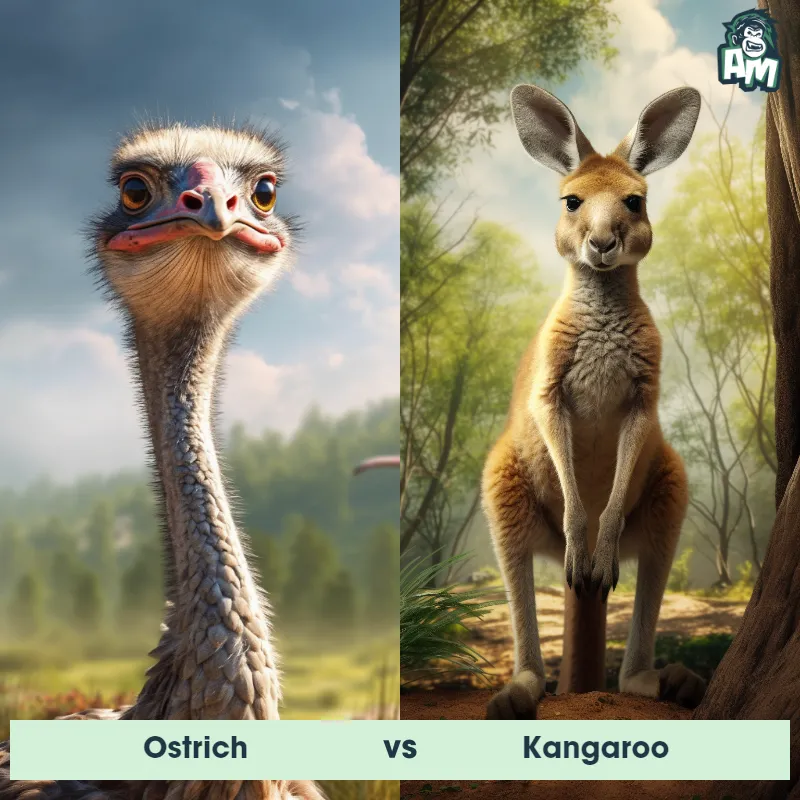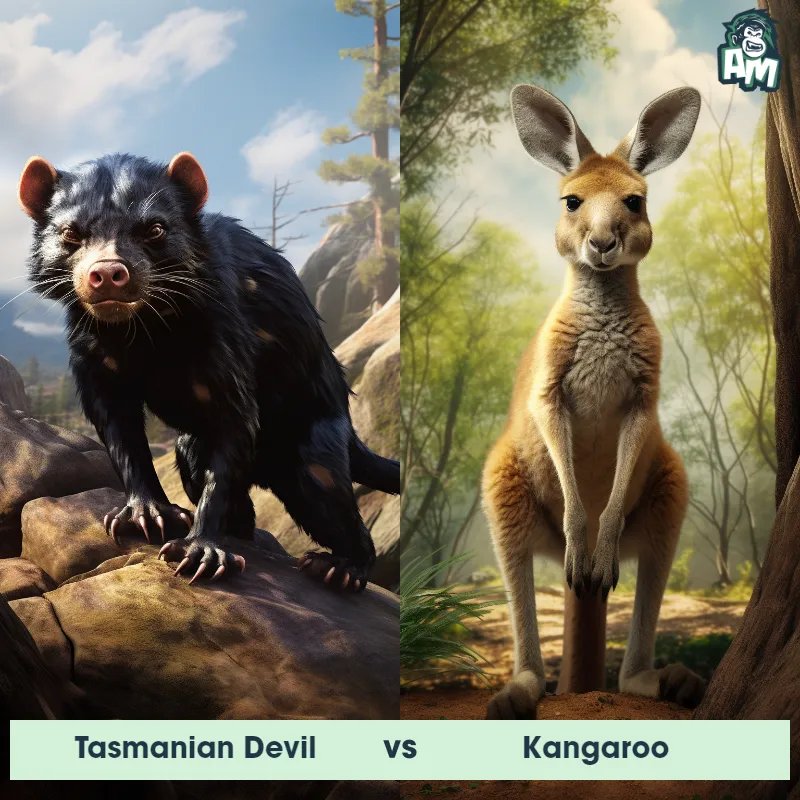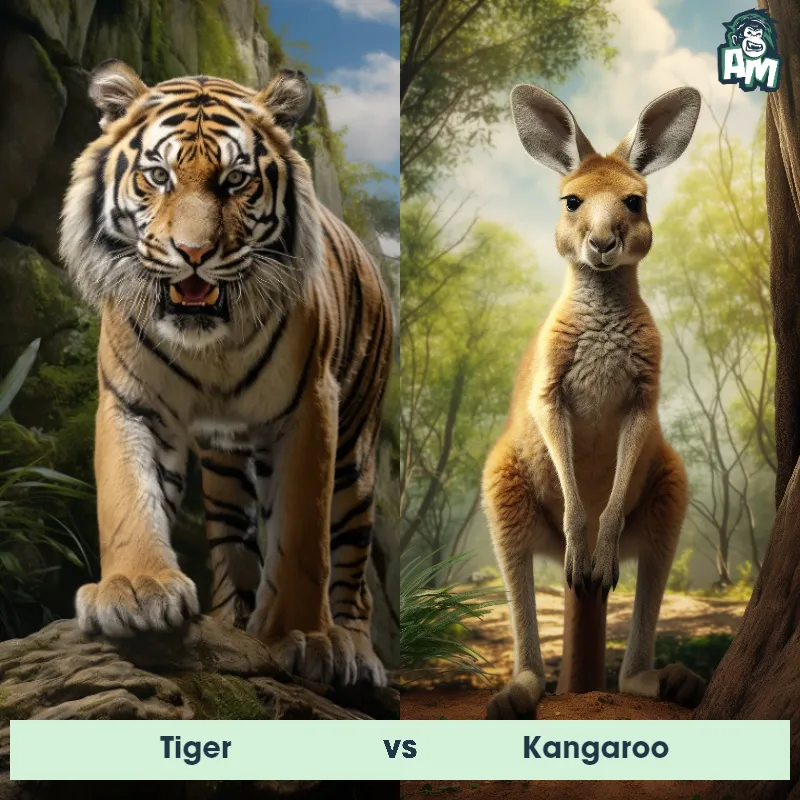The Kangaroo
Kangaroos are large marsupials native to Australia. They are known for their strong hind legs, long tail, and pouch in which they carry their young, known as joeys. Kangaroos have a unique method of locomotion through hopping, using their powerful legs. They are herbivorous and mainly feed on grasses and shrubs. Kangaroos have a distinctive appearance with their muscular bodies, large ears, and a characteristic bounding movement that allows them to cover long distances efficiently. They have a strong sense of hearing and an excellent sense of smell, which helps them navigate their surroundings.
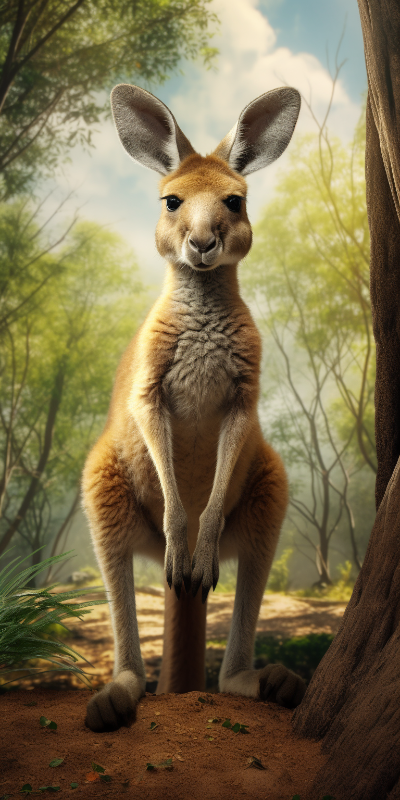
| Kangaroo | |
|---|---|
| Size | 3-8 feet tall (0.9-2.4 meters) |
| Weight | 40-200 pounds (18-90 kilograms) |
| Speed | 44mph (70km/h) |
| Key Strength | Powerful hind legs and strong tail for balance and kicking |
| Biggest Weakness | Limited mobility when not hopping |
| Scientific Name | Macropus |
| Family | Macropodidae |
| Habitat | Grasslands, forests, deserts, and suburban areas |
| Geography | Australia and New Guinea |
| Diet | Herbivore, primarily grasses and shrubs |
| Lifespan | 6 years - 8 years |

The Kangaroo
Kangaroos are large marsupials native to Australia. They are known for their strong hind legs, long tail, and pouch in which they carry their young, known as joeys. Kangaroos have a unique method of locomotion through hopping, using their powerful legs. They are herbivorous and mainly feed on grasses and shrubs. Kangaroos have a distinctive appearance with their muscular bodies, large ears, and a characteristic bounding movement that allows them to cover long distances efficiently. They have a strong sense of hearing and an excellent sense of smell, which helps them navigate their surroundings.
Fun Fact: Kangaroos are the largest marsupials on the planet, with the red kangaroo being the largest of them all, reaching heights of up to 6 feet and weighing up to 200 pounds.
| Kangaroo | |
|---|---|
| Size | 3-8 feet tall (0.9-2.4 meters) |
| Weight | 40-200 pounds (18-90 kilograms) |
| Speed | 44mph (70km/h) |
| Key Strength | Powerful hind legs and strong tail for balance and kicking |
| Biggest Weakness | Limited mobility when not hopping |
| Scientific Name | Macropus |
| Family | Macropodidae |
| Habitat | Grasslands, forests, deserts, and suburban areas |
| Geography | Australia and New Guinea |
| Diet | Herbivore, primarily grasses and shrubs |
| Lifespan | 6 years - 8 years |
Match Highlights
Kangaroo Matchups
We use AI to simulate matchups between the Kangaroo and other animals. Our simulation considers size, strength, and natural predatory behaviors to determine the most likely outcome.
Kangaroo: Diet, Predators, Aggression, and Defensive Behaviors
What do Kangaroos eat?
Kangaroos are herbivores, meaning they mainly consume plants. Their diet consists of grasses, leaves, ferns, and even some fruits. Kangaroos are known to be picky eaters, choosing the most nutritious parts of plants to sustain their energy levels.
Do Kangaroos have any predators?
Kangaroos do have predators in the wild, such as dingoes, wild dogs, and large birds of prey. However, adult kangaroos are often too large and fast for most predators to catch. Joeys (baby kangaroos) are more vulnerable and can fall victim to predators like foxes or eagles.
Are Kangaroos aggressive?
Male kangaroos, known as bucks, can be territorial and aggressive, especially during mating season. Kangaroos may box with their forearms or kick with their powerful hind legs to establish dominance or defend their territory. Female kangaroos, called does, are generally more docile and only become aggressive when protecting their young.
Do Kangaroos fight?
Yes, kangaroos do fight, mostly during mating season when competition for females is high. Male kangaroos engage in boxing matches to establish dominance and win the right to mate with females. These boxing matches involve powerful kicks and strikes with their forelegs.
How do Kangaroos defend themselves?
Kangaroos have several defense mechanisms to protect themselves from predators or rival kangaroos. Their most notable defense is their ability to hop away at high speeds, reaching up to 50 km/h. Additionally, kangaroos can also deliver powerful kicks with their hind legs to fend off threats.
What is the biggest weakness of Kangaroos in a fight?
While kangaroos are known for their powerful kicks and agility, their biggest weakness in a fight is their vulnerability to attacks targeting their abdomen. A well-placed kick or punch to the kangaroo's stomach can cause significant damage and incapacitate them. Additionally, kangaroos may tire quickly during prolonged fights due to their high energy expenditure.
Fun Fact: Kangaroos have a unique reproductive system called embryonic diapause, where a female kangaroo can delay the development of a fertilized egg until conditions are favorable for raising the joey.
Fun Fact: Kangaroos have adapted to their arid environment by possessing the ability to survive for long periods without water. They can obtain most of their necessary moisture from the vegetation they consume, allowing them to thrive in the harsh Australian outback.



